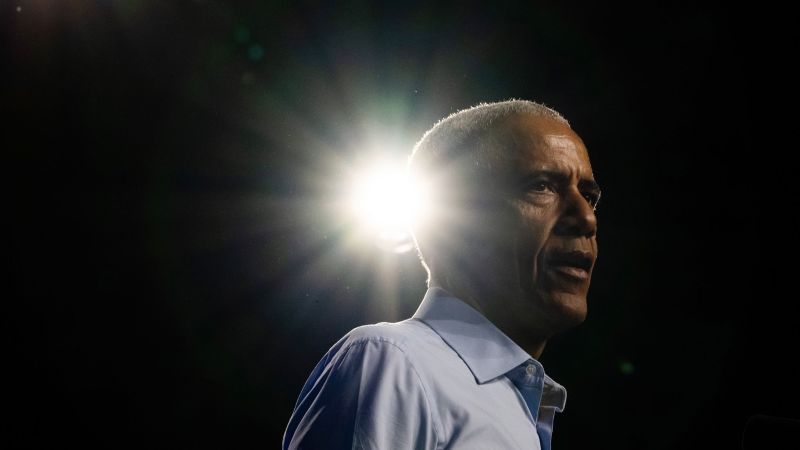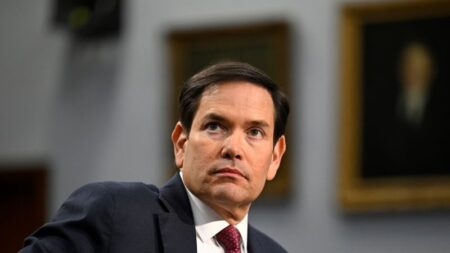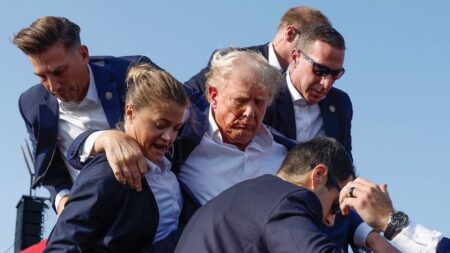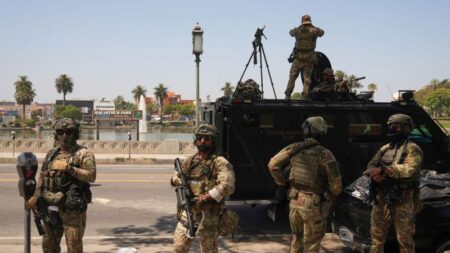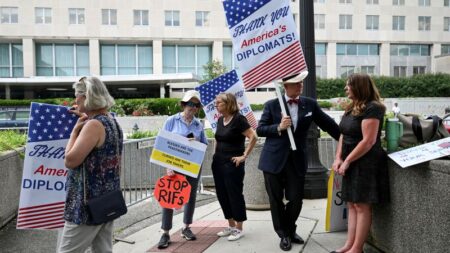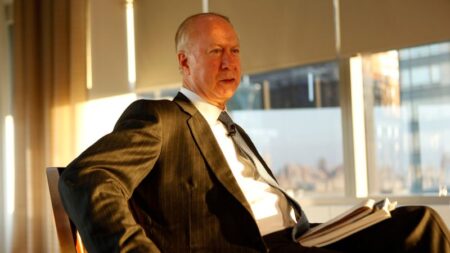On a Tuesday evening, Barack Obama took a notable step into the realm of domestic politics, a sphere he typically avoids, making an impactful statement that underscored the current threats to democracy. Speaking at the Connecticut Forum in Hartford, the former president made an emphatic call for a collaborative effort aimed at safeguarding democratic institutions. He urged law firms, educational institutions, and politicians from both sides of the aisle to make “uncomfortable” sacrifices in light of what he perceives as rising authoritarianism during President Donald Trump’s second term. Without directly mentioning Trump, Obama expressed concern that the United States is perilously on the brink of more autocratic rule.
Reflecting on the broader implications of the current political climate, Obama remarked, “What’s happening is that we now have a situation in which all of us are going to be tested in some way, and we are going to have to then decide what our commitments are.” He emphasized the need for commitment under challenging circumstances, asserting, “It will be uncomfortable for a time, but that’s how you know it’s a commitment.” The message was clear; true dedication to preserving democracy may necessitate sacrifices that could have personal ramifications.
In his address, Obama illustrated the challenges faced by law firms that resist compliance with Trump’s directives, indicating that such firms might encounter financial repercussions, such as diminished billings. He humorously pointed out that this could prevent one from undertaking planned renovations in their Hamptons vacation home. This revelation drew attention to the tangible risks faced by entities that stand against perceived intimidation from the administration, including the possibility of facing politically motivated investigations or delays in mergers.
Significantly, Obama recognized individuals within Trump’s Justice Department as defenders of constitutional integrity amidst the president’s rhetoric, subtly reinforcing the idea that democratic principles are still upheld by some in the government. His remarks represented a strong appeal for a concerted resistance, particularly from a respected Democratic leader, at a time when grassroots activism has surged in response to perceived threats against democratic norms. Nevertheless, within the Democratic party, a notable absence of leadership remains, complicating a unified response.
Notably, Obama’s appeal was somewhat overshadowed by the nature of the event, which prohibited audio and video recordings. This decision raises questions regarding the outreach and broader public engagement for his message. The lack of direct mentions of Trump, while avoiding specifics about the perceived threats to democracy, could be seen as an attempt to maintain a level of decorum expected of former presidents. Nevertheless, his comments contained enough contextual clues to indicate the targets of his concern.
He stated, “if you follow regularly what is said by those who are in charge of the federal government right now, there is a weak commitment to how a liberal democracy is supposed to work.” His warnings about the government being influenced by individuals with “weak attachment to democracy” resonated with attendees, suggesting a recognition of the urgent need for vigilance against encroaching authoritarianism.
However, opinions on whether democracy is truly “under attack” remain mixed among the wider American populace. A recent CNN survey indicated that while 49% of respondents believe American democracy is imperiled, this figure is lower than many polls from previous years. This sentiment has been particularly pronounced among Democrats, with only about 70% viewing the situation as an immediate threat, while Republicans have become more assured about the state of democracy as Trump’s 2024 campaign unfolds.
Obama’s approach aligns with the traditional behavior of former presidents, who typically refrain from directly criticizing their successors. While he has participated in political discourse, particularly against Trump, he faces the unique challenge of addressing the underlying threats against democracy without overstepping the precedents set for former leaders. His comments, albeit measured, reflect a profound concern for the nation’s democratic fabric while navigating the complexities of political rhetoric in a deeply polarized climate.
As Obama subtly advocates for collective preparedness against these challenges, he mirrors sentiments often expressed by figures within the military who hesitated to deeply engage in political discourse during Trump’s administration. There is a growing need for a clear voice of authority within the Democratic Party, one capable of addressing the spectrum of challenges posed by Trump’s influence effectively.
Despite the hesitance to disrupt the existing state of affairs, polls affirm Obama’s popularity among the American public, marking him as a potentially central figure capable of rallying support for democratic principles. Nonetheless, there are reasons for his restraint, particularly to allow upcoming Democratic leaders to emerge and establish their presence. Presently, however, he remains cautious about extending outside his realm of comfort, indicative of the delicate balance he is trying to maintain amid an evolving political landscape.





